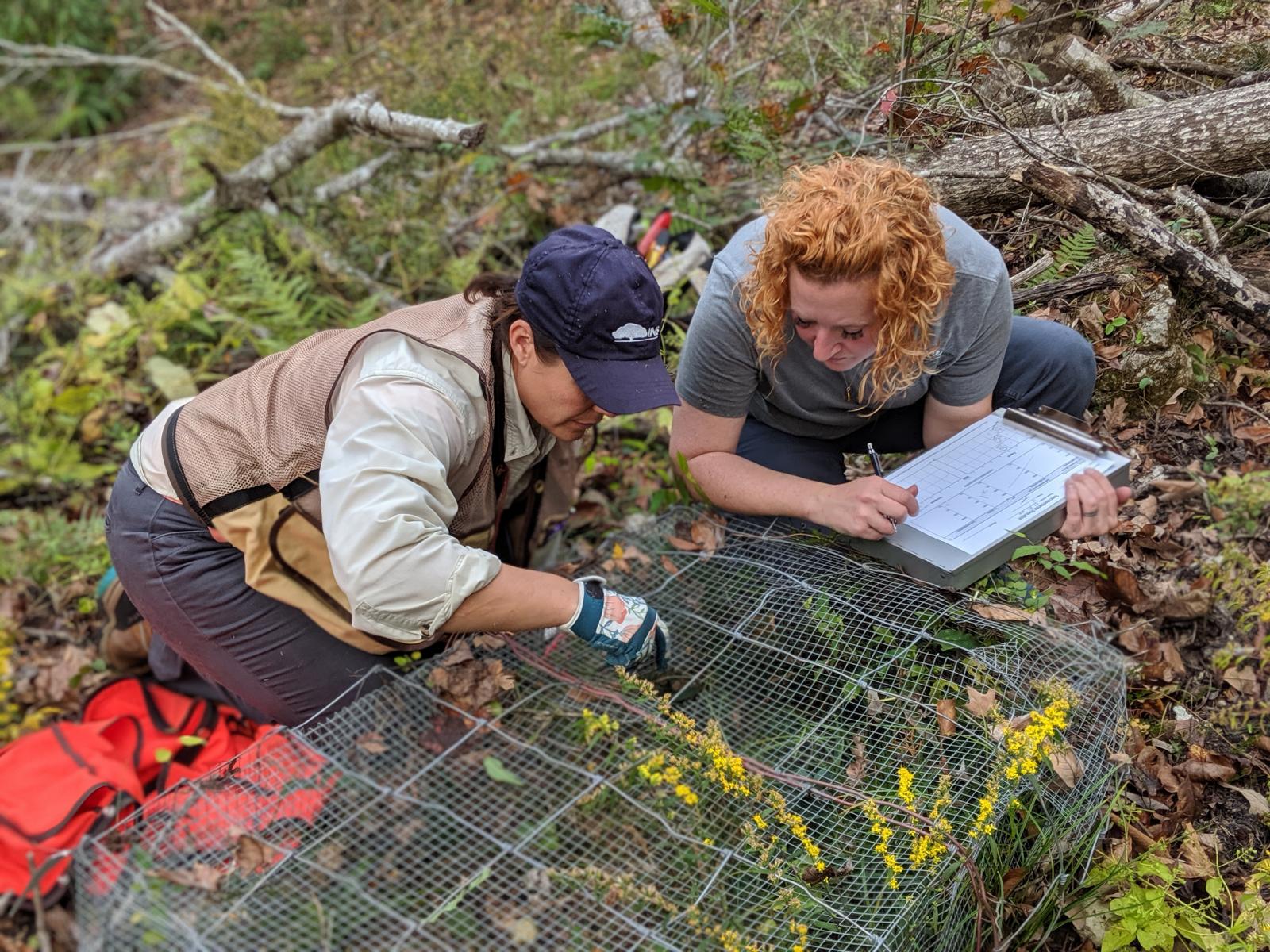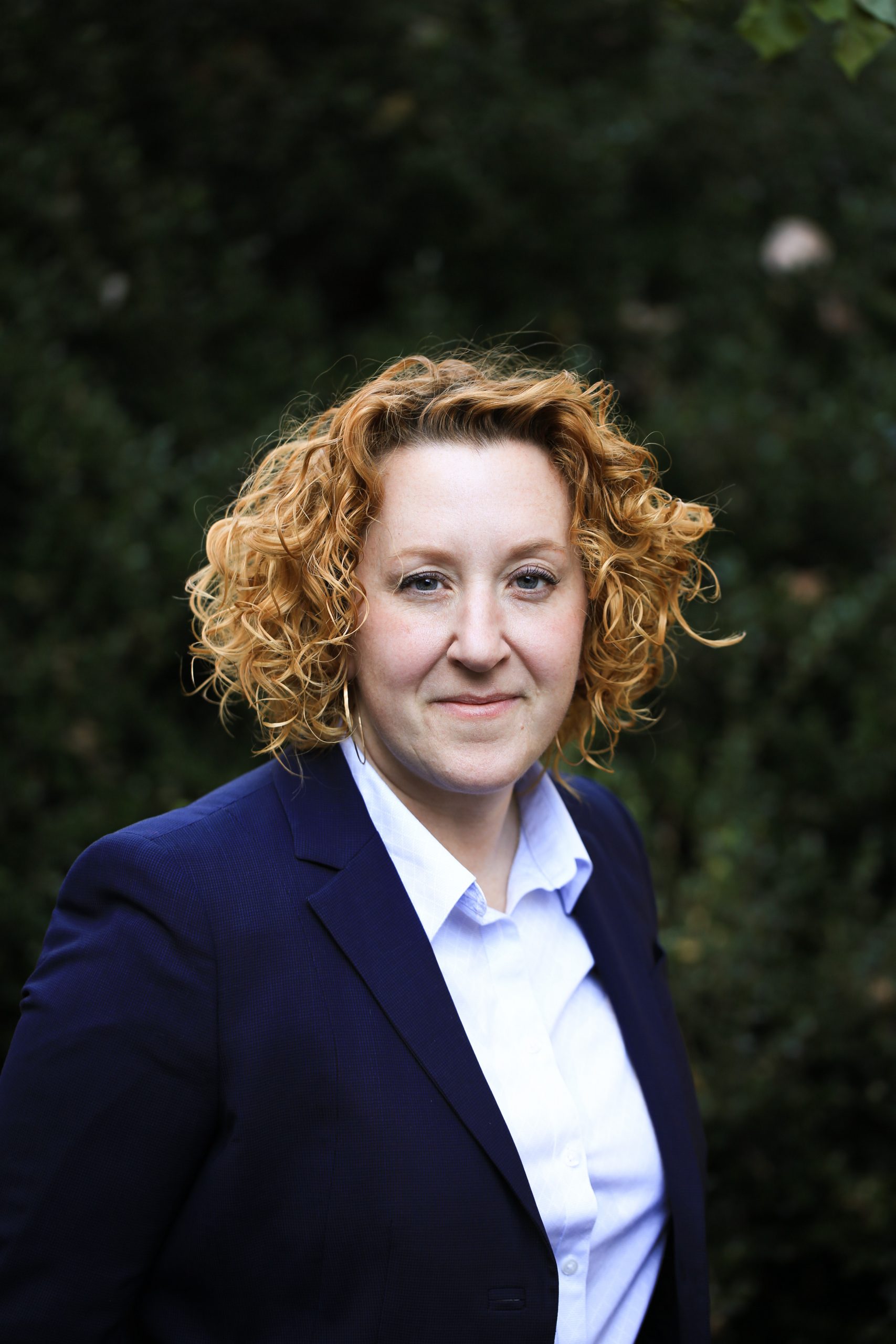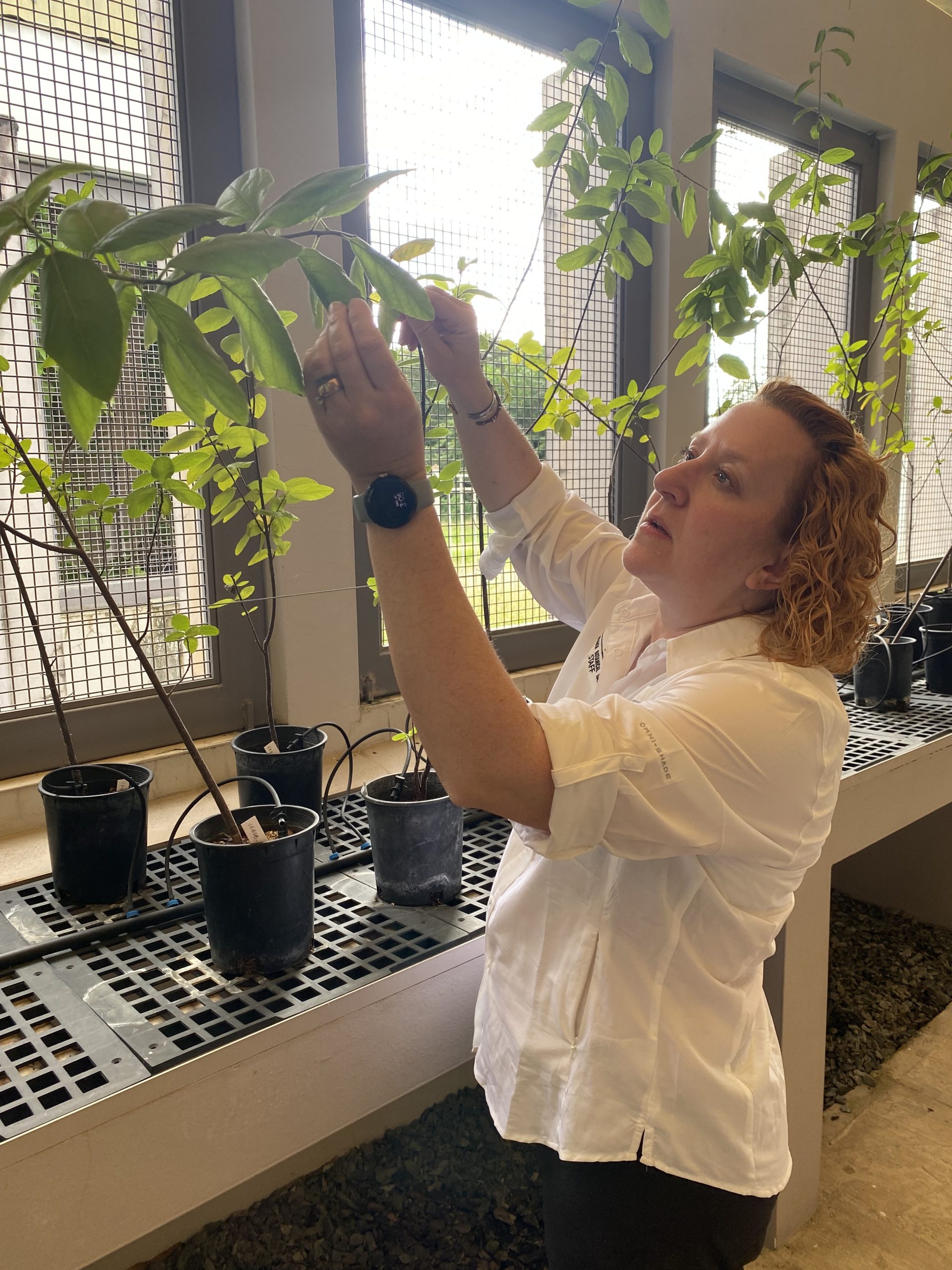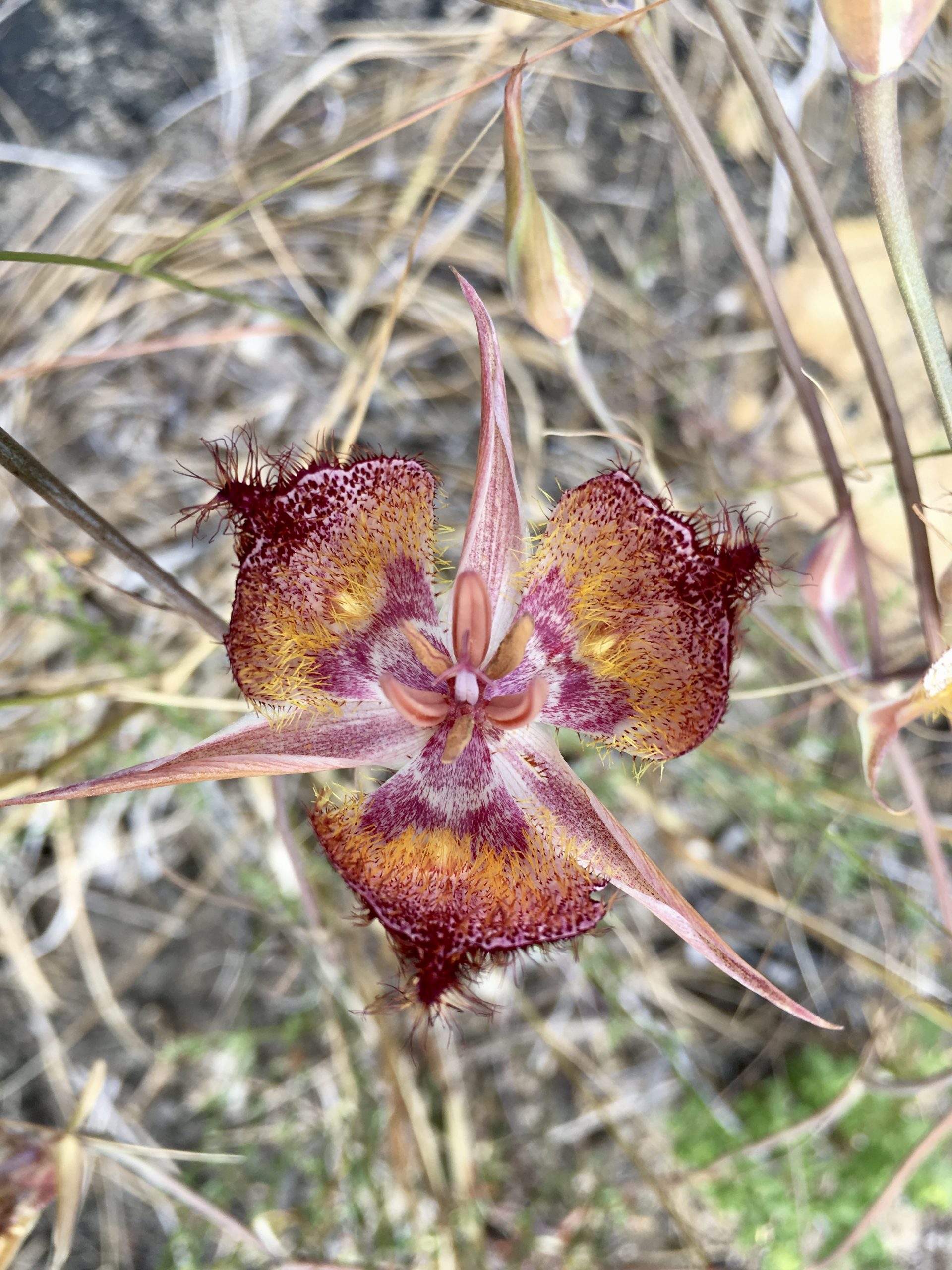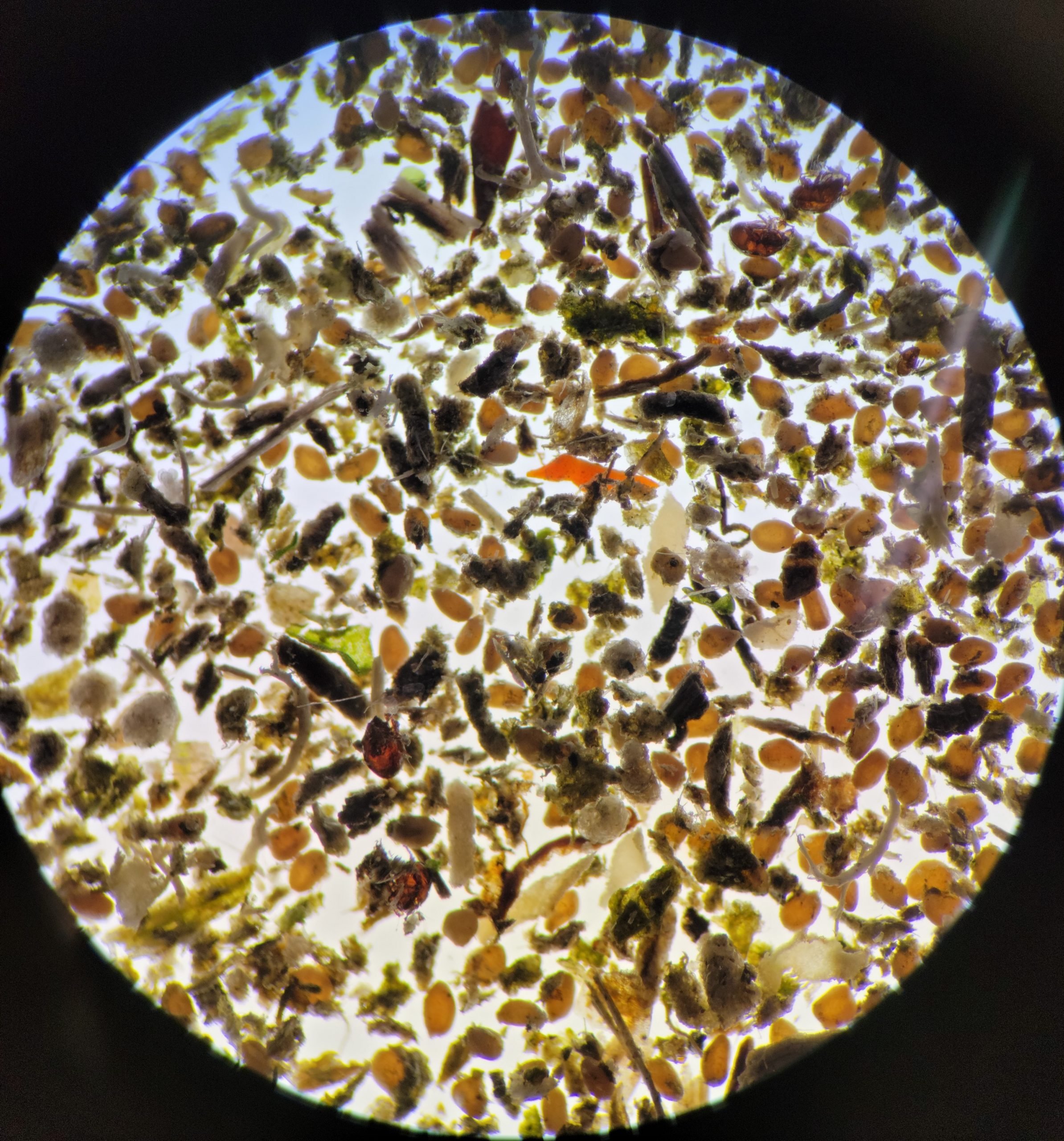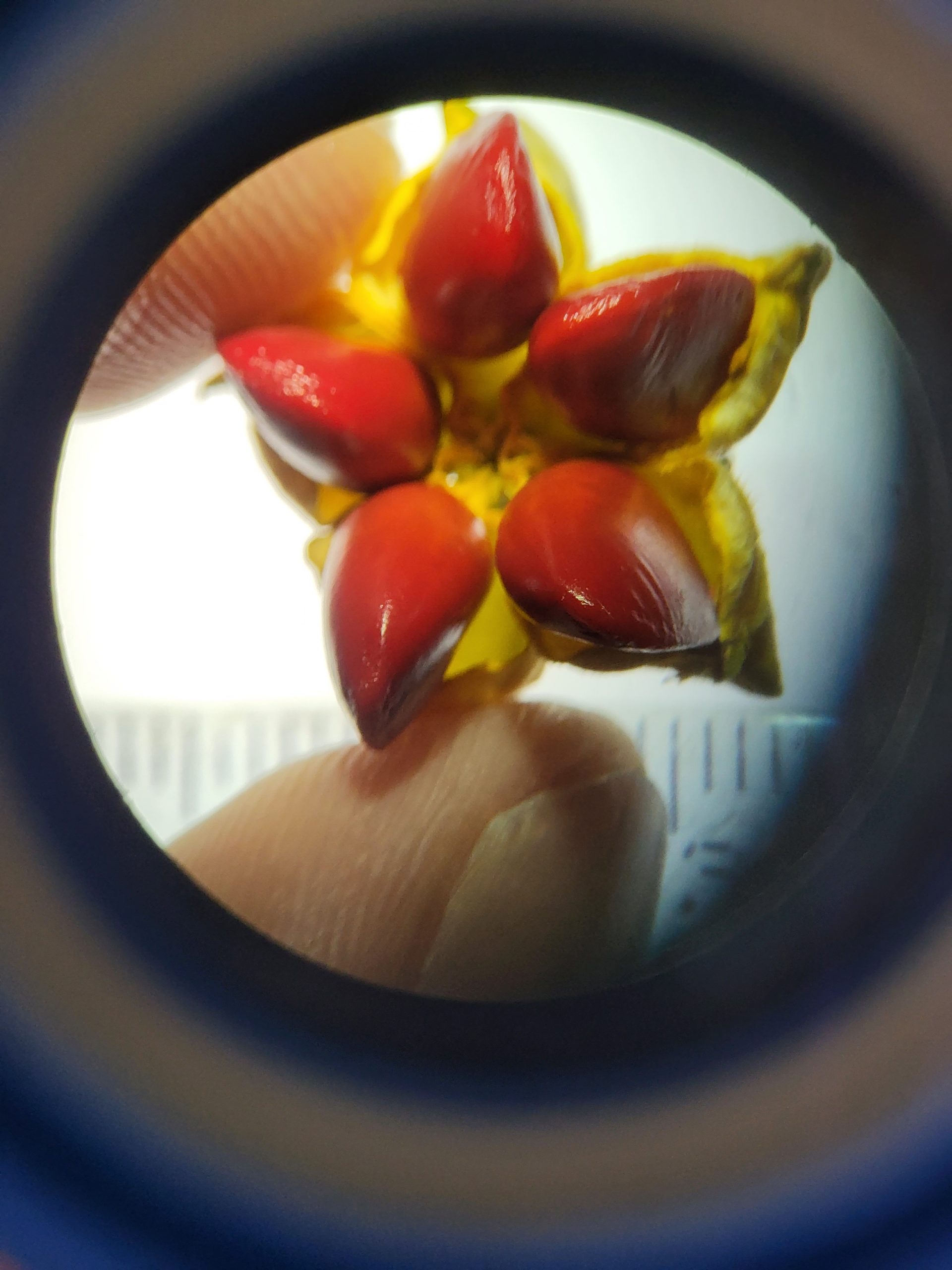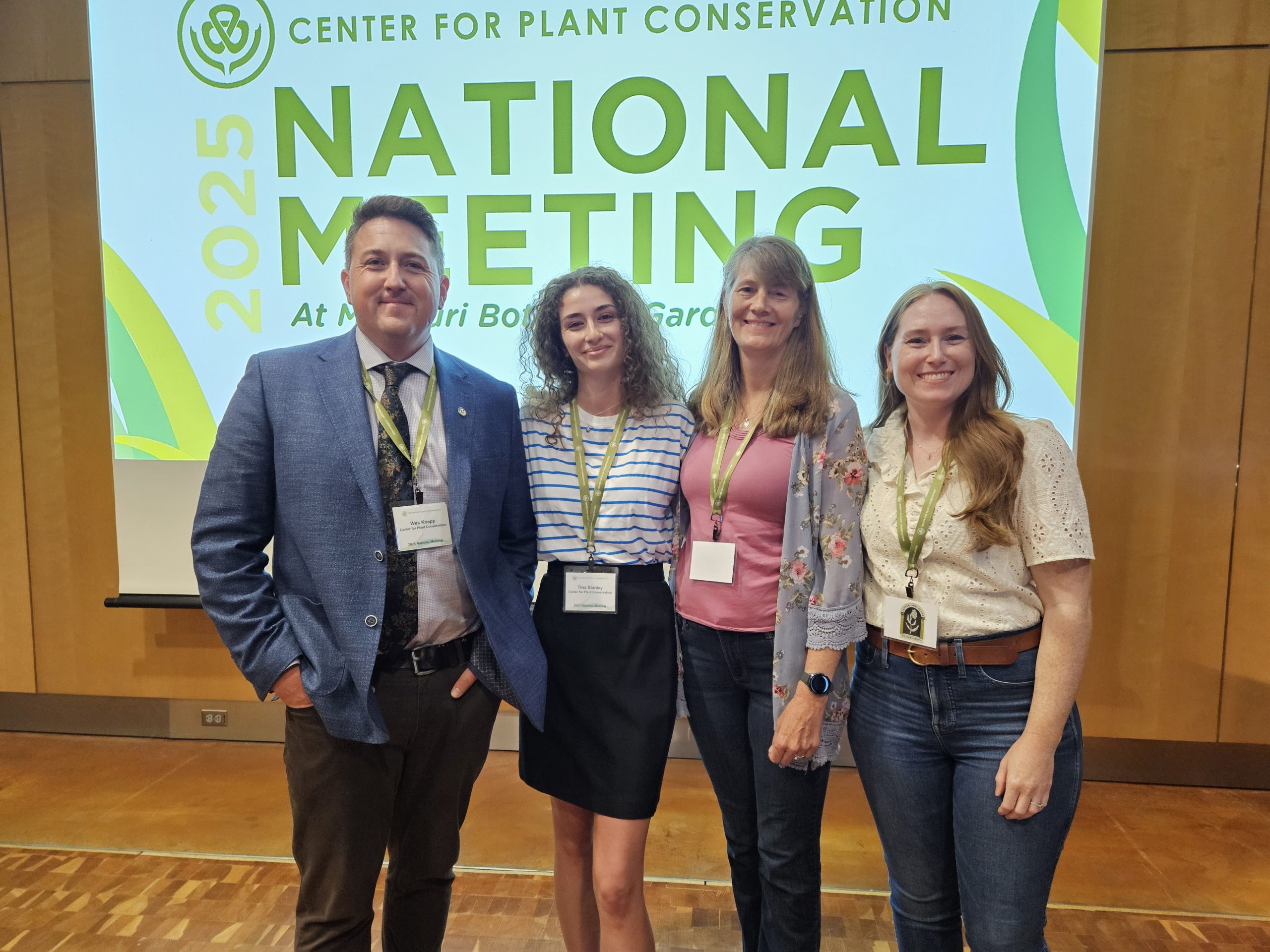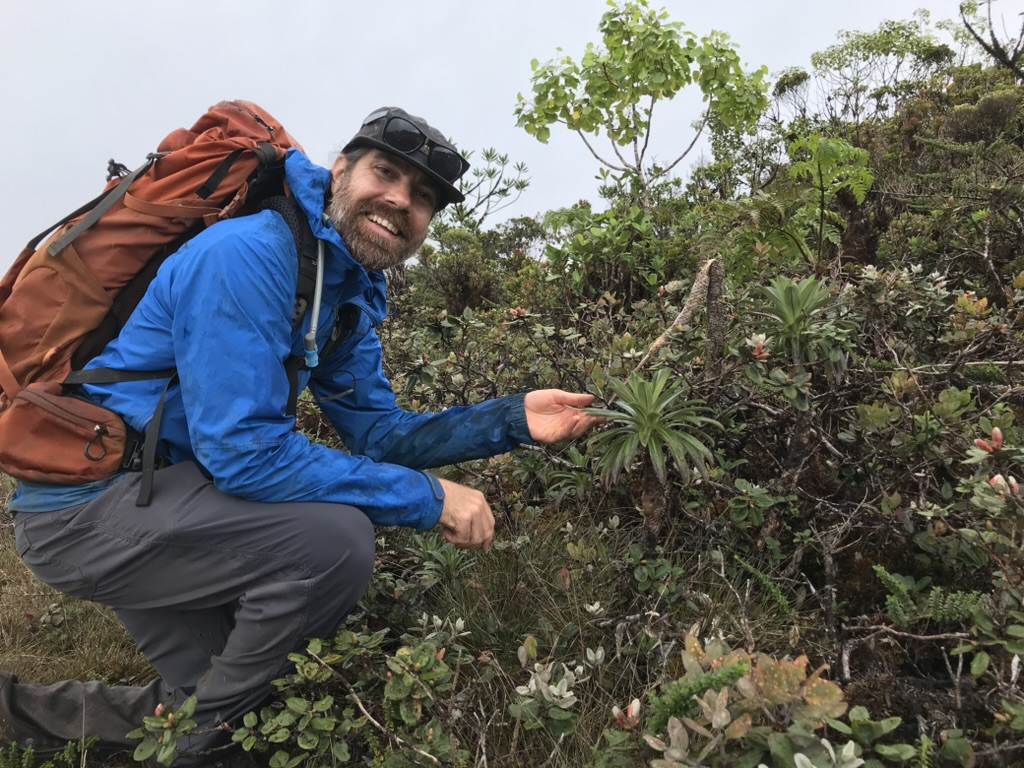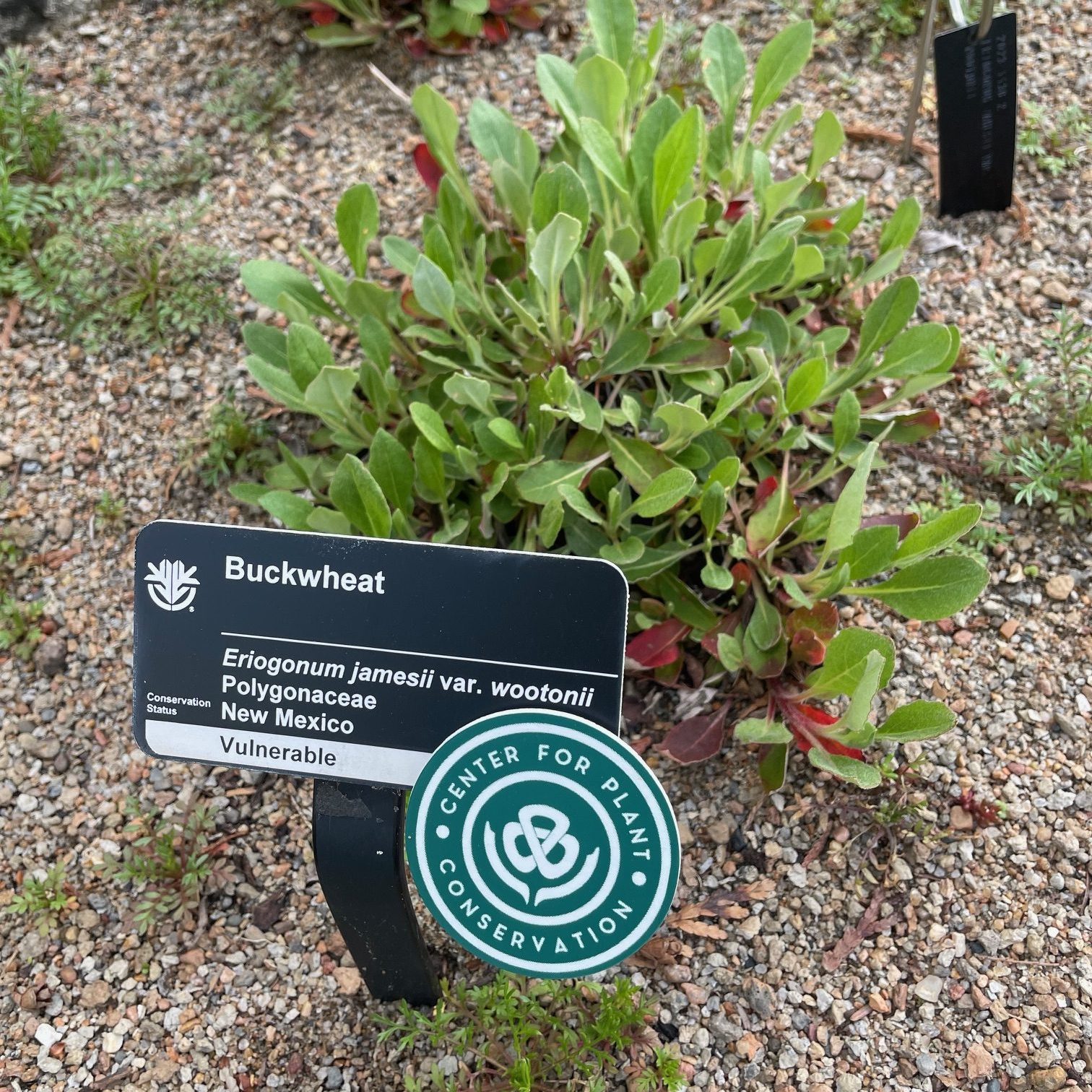SAVE PLANTS
Center for Plant Conservation
Earlier this month, the Center for Plant Conservation’s (CPC) National Meeting convened in San Diego, CA, drawing over 160 plant conservation practitioners, researchers, and advocates from across the country. With the theme, Conservation Innovation: Harnessing Technology to Advance Rare Plant Conservation, the National Meeting served as a vibrant platform for the presentation of numerous projects and initiatives that are advancing the field of plant conservation, particularly underscoring our collective dedication to innovation and leveraging cutting-edge technologies and methodologies in our pursuit to protect and preserve endangered plant species. Over the two-day conference, attendees had the chance to share insights, discuss challenges and opportunities, and form new connections and partnerships—embodying CPC’s spirit of fostering a collaborative and knowledge-sharing community dedicated to preserving plant biodiversity.
This year’s meeting was particularly momentous as it marked CPC’s 40th anniversary, a milestone celebrated with a keynote address by CPC co-founder and former executive director, Dr. Don Falk. His inspiring speech highlighted the organization’s achievements and future aspirations, reminding us of the enduring importance of collective effort in conservation. The conference not only honored CPC’s legacy but also looked ahead with optimism and determination, reinforcing the vital role of technological advancement and innovative approaches in safeguarding our planet’s botanical heritage.
Our gratitude goes to the San Diego Zoo Wildlife Alliance for hosting this year’s National Meeting and for their generous support as our host institution where our offices are headquartered. We also thank everyone who gathered for this conference—this passionate and supportive community of plant lovers fills us with hope that we can ensure a brighter future for plants, people, and our planet!
Sincerely,
The CPC National Office Team
Highlights from the CPC National Office
During the National Meeting, the CPC National Office team and several of our partners gave a series of presentations highlighting CPC-led initiatives that support our network’s shared mission to save plants from extinction, including federal grant-funded projects, expanded CPC database tools and educational resources, and a new cooperative agreement with the National Park Service. These programs and resources demonstrate CPC’s enduring commitment to plant conservation—from advancing plant conservation science through innovative technologies and methodologies to making plant-saving knowledge accessible to global audiences. We are proud to support our conservation community through these initiatives—learn more below!
Seed Longevity Study
For the past several years, CPC has been collaborating with its network of Conservation Partners and the National Laboratory for Genetic Resources Preservation (NLGRP) to test the aging and longevity of wild rare plant species’ seeds in long-term orthodox seedbanks. Now in its final year, this Institute for Museum and Library Services-funded Seed Longevity Study has shown promising results for the rare and endangered species we steward in the CPC National Collection. CPC’s former VP of Science and Conservation, Dr. Katie Heineman, and Dr. Chris Walters of NLGRP shared some of those preliminary results during this year’s conference.
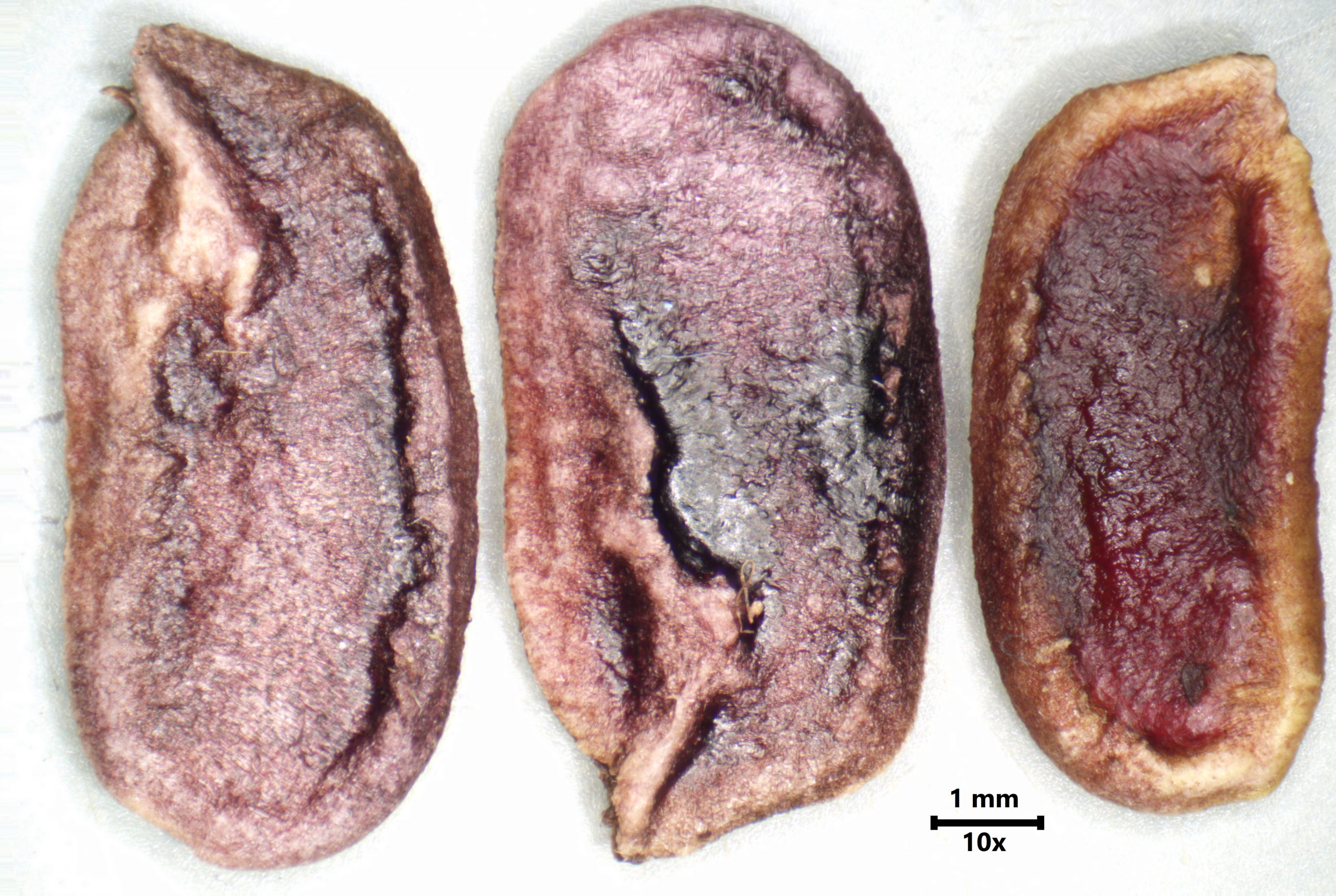
The study—which utilizes RNA integrity number (RIN) as a metric of seed aging—compared the germination-based viability and RNA integrity of seeds held in frozen storage for 15+ years to seed recollected or regenerated from the same plant population. Collaborators tested the hypothesis that RIN can help approximate seed health in storage, which can be used to inform curation and management decisions surrounding rare plants. Results showed that RIN is in fact a reliable metric of aging and predicting seed longevity for wild rare plant species, and ecological factors heavily influence seed longevity, including habitat, life form, bloom period, and more.
Results of the study will be published in peer-reviewed publications and will be refined into new best practice guidelines for rare plant curation methods. Additionally, a terminal webinar about study insights will be hosted in fall 2024 for the broader seed banking community.
Applied Plant Conservation Course
The Rare Plant Academy’s newest offering, the Applied Plant Conservation Course, is a free, online professional development training designed to equip both current and prospective members of the botanical workforce with the tools and knowledge needed for effective rare plant stewardship and conservation.
The course, which has been in development since 2021 with partial funding from the Bureau of Land Management, was officially launched at the 2023 National Meeting and is now in its final year of development. During this year’s conference, CPC’s Director of Communications and Public Programs, Shannon Fowler, shared a progress update on the course’s curriculum development created in collaboration with 19 of CPC’s Institutional Conservation Partners. Modules I-V are currently available on the course platform—covering topics from rare plant ecology and genetic diversity to conducting rare plant surveys (see the video at right for a preview from Module IV!) and reintroductions, and much more. The remaining four Modules set to launch by the end of 2024.
Shannon also shed light on the diverse participant base that has engaged with the course thus far, highlighting the interdisciplinary nature of conservation efforts and the global reach of our initiative. Of the 400 participants enrolled in the course as of May 2024, 52% opted into our pre-course survey which serves to help CPC understand how the course is being used, why participants are interested in the course and what their current conservation knowledge level is, what their professional affiliations are, and more. The majority of respondents hail from the United States (69%), followed by The Philippines (9.5%), Canada (4%), South Africa (2.5%), the United Kingdom (2%), and other countries across the globe (13%). Respondents identified themselves across a variety of conservation disciplines and interests, including conservation professionals (52.5%), land managers (29%), interested community members (25.5%), undergraduate and graduate students (25%), horticulture professionals (19.5%), and other affiliations (17.5%). Additionally, 79% of respondents are not yet members of CPC and have not previously utilized Rare Plant Academy resources, indicating that we are reaching new audiences and introducing them to the CPC network’s expert plant conservation knowledge and best practices.
Lastly, a call-to-action was shared for volunteers to participate in a final beta-testing activity to help inform improvements to the course platform and user experience. Beta testing is an opportunity for us to engage learners with the course so we can make edits to the user experience, design, and structure to helps us improve the course to best serve learners. We are actively seeking volunteers to participate in this beta testing activity by July 31, 2024. Interested in beta testing? Learn more here.
CPC is pleased to offer this course to interested participants, free-of-charge, with the aim to foster further collaboration and education within the botanical community. Once all nine Modules of the course are online, CPC will offer a certificate of completion to those who complete the full course curriculum.
Regional Initiatives and Databases
For the past several years, CPC has been involved in two regional seed collections initiatives, California Plant Rescue and Florida Plant Rescue, in collaboration with network Conservation Partners based in those regions. These initiatives aim to secure each region’s rare flora in conservation collections to safeguard them from extinction. At this year’s conference, CPC’s Conservation Program Coordinator, Tina Stanley, shared updates on these regional initiatives and highlighted an exciting data resource stemming from them, CPC’s Seed Collection Targeting Module.
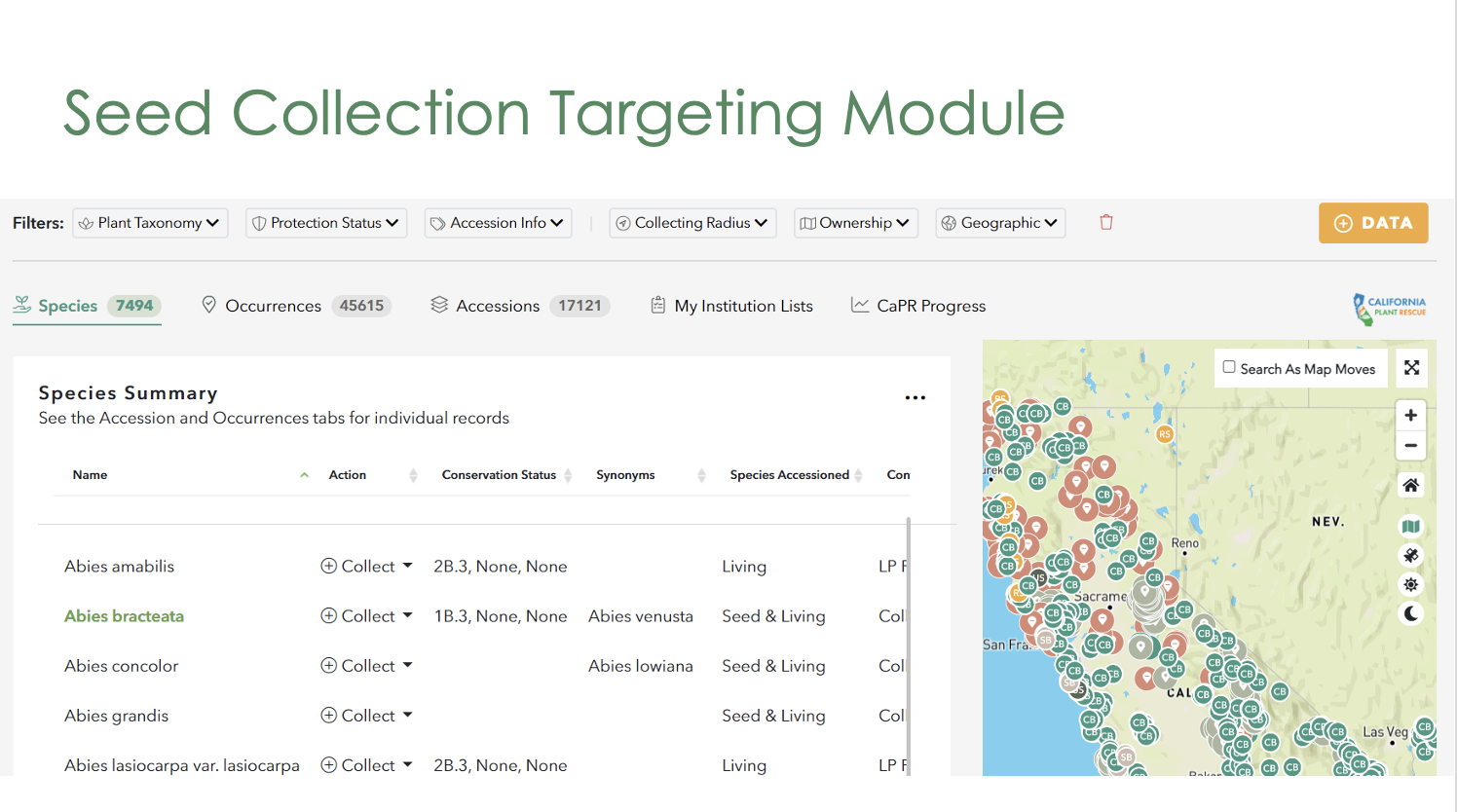
This database resource synthesizes ex situ collection data with in situ occurrence records from natural heritage programs and government agencies, allowing for more streamlined targeting of priority species and populations. This module is being expanded for CPC Conservation Partners to include Nevada through an agreement with the Nevada Division of Natural Heritage; Arizona and New Mexico in collaboration with USFS Region 3; and several intermountain states through a new agreement with the Department of the Interior (NPS, BLM, USFWS). Combining resources into this new tool allows us to effectively facilitate the collection of high-priority seeds that then make their way into seedbanks.
For seeds already secured in storage, the next step is to safely and thoughtfully get them back out into their wild habitats. Tina shared an update on the revamped CPC Reintroduction Database (CPCRD), which serves as a centralized and standardized repository of information to advance the science and practice of plant reintroductions and other conservation translocations. The CPCRD is up to an impressive 480 reintroduction projects documented. Data from these projects, spanning nearly 40 years of conservation work throughout the CPC network and beyond, is contributing to analyses to better understand what contributes to reintroduction success.
Both the Seed Collection Targeting Module and the CPCRD allow us to standardize data across many institutions and years and synthesize the data so that conservation practitioners can make timely, informed decisions that collectively help us save plants from extinction.
CPC and National Park Service Cooperative Agreement
Katie VinZant of the National Park Service (NPS) announced the launch of a new cooperative agreement which articulates the methods for how NPS units can coordinate with CPC-affiliated institutions to assess, collect, and act as repositories for ex situ conservation collections made from plant species found on NPS lands.
Historically, NPS rare plant conservation activities had been park-centric and internal, with seed considered NPS property which could not be shared. Under this new cooperative agreement, collaboration and partnership are emphasized in order to share resources and conduct conservation actions including evaluation, collection (of seeds, cuttings, spores, living plants, and herbarium vouchers), propagation, storage, and ex situ/in situ restoration. Additionally, this new agreement authorizes the maintenance of conservation collections including periodic germination testing, genetic testing and research, propagation trials, and more.
This new cooperative agreement will grant CPC’s Conservation Partners easier access to rare plant populations occurring on NPS land and facilitate deep partnerships as we work together to protect and conserve rare plants. The agreement is in place through April 2028, with the option to be renewed. CPC Conservation Partners who wish to learn more can visit the “Grant Program Resources” section of the CPC Partner Resources dashboard.
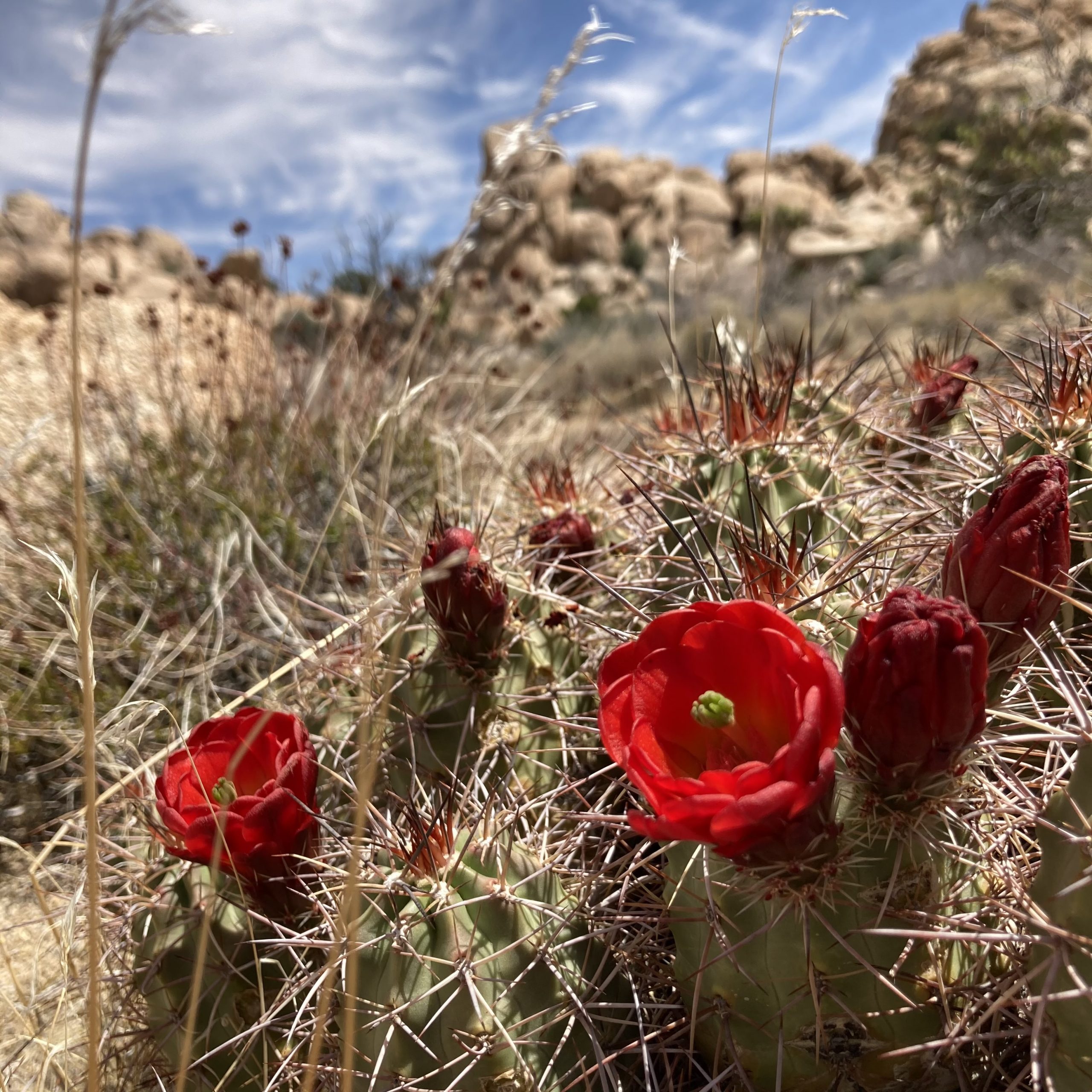
-

2024 National Meeting day one at the San Diego Zoo and Safari Park. Photo by Bob Hoffman Photography. -
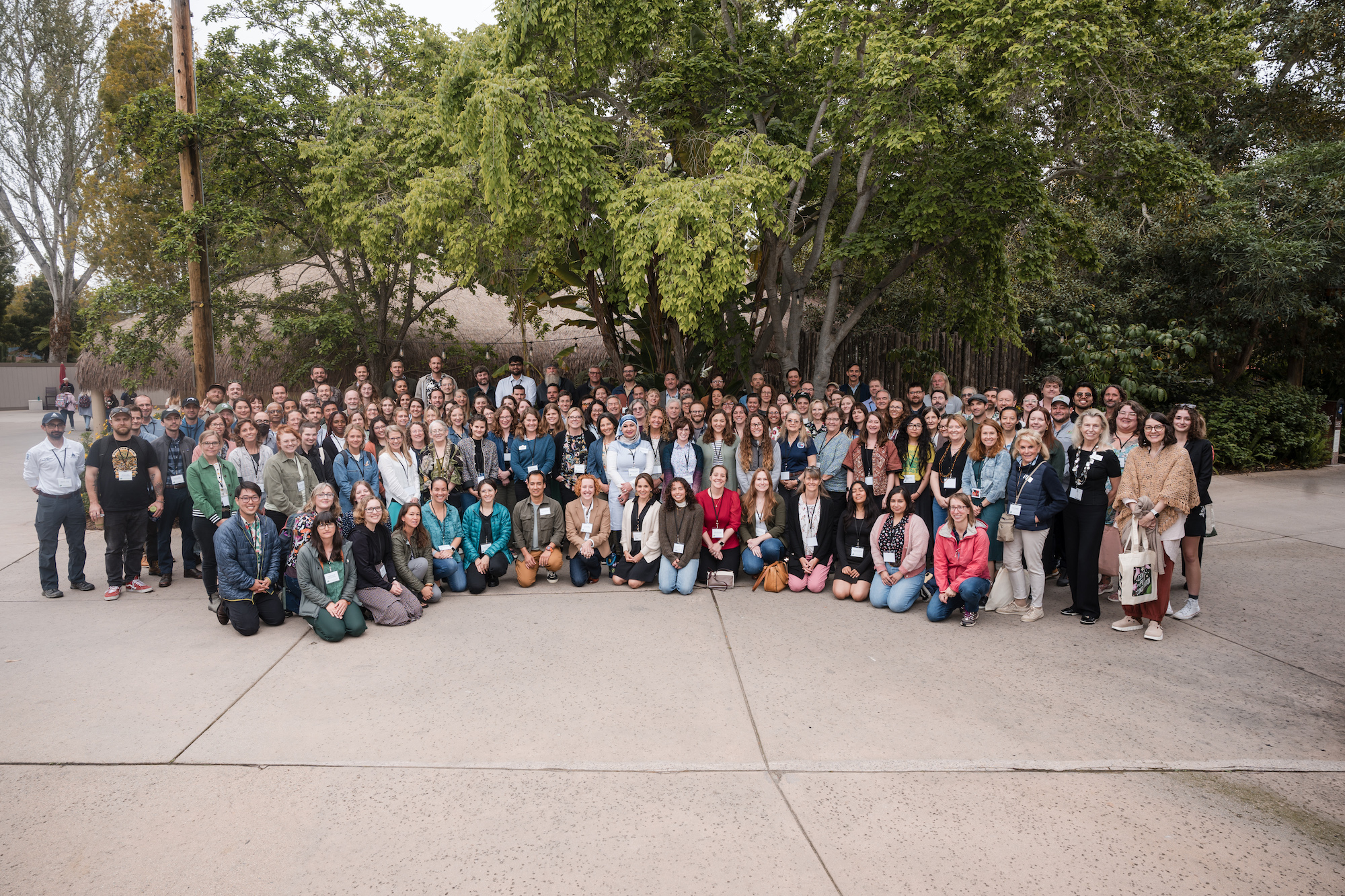
2024 National Meeting Attendees at the San Diego Zoo Safari Park. Photo by Bob Hoffman Photography. -

Attendees of the 2024 National Meeting on a tour of the San Diego Zoo Safari Park's gardens. Photo by Bob Hoffman Photography.
Keynote Address: 40 Years of CPC and Beyond
Dr. Don Falk, co-founder and former executive director of the Center for Plant Conservation, was the keynote speaker at the 2024 National Meeting held at the San Diego Zoo Safari Park. He delivered a lively and insightful address recounting the early days of CPC, reflecting on pivotal cultural moments from 1984—from the debut of the Macintosh computer and the Minivan, to the first Terminator movie and the opening of the Monterey Bay Aquarium—and the official beginnings of the Center for Plant Conservation.
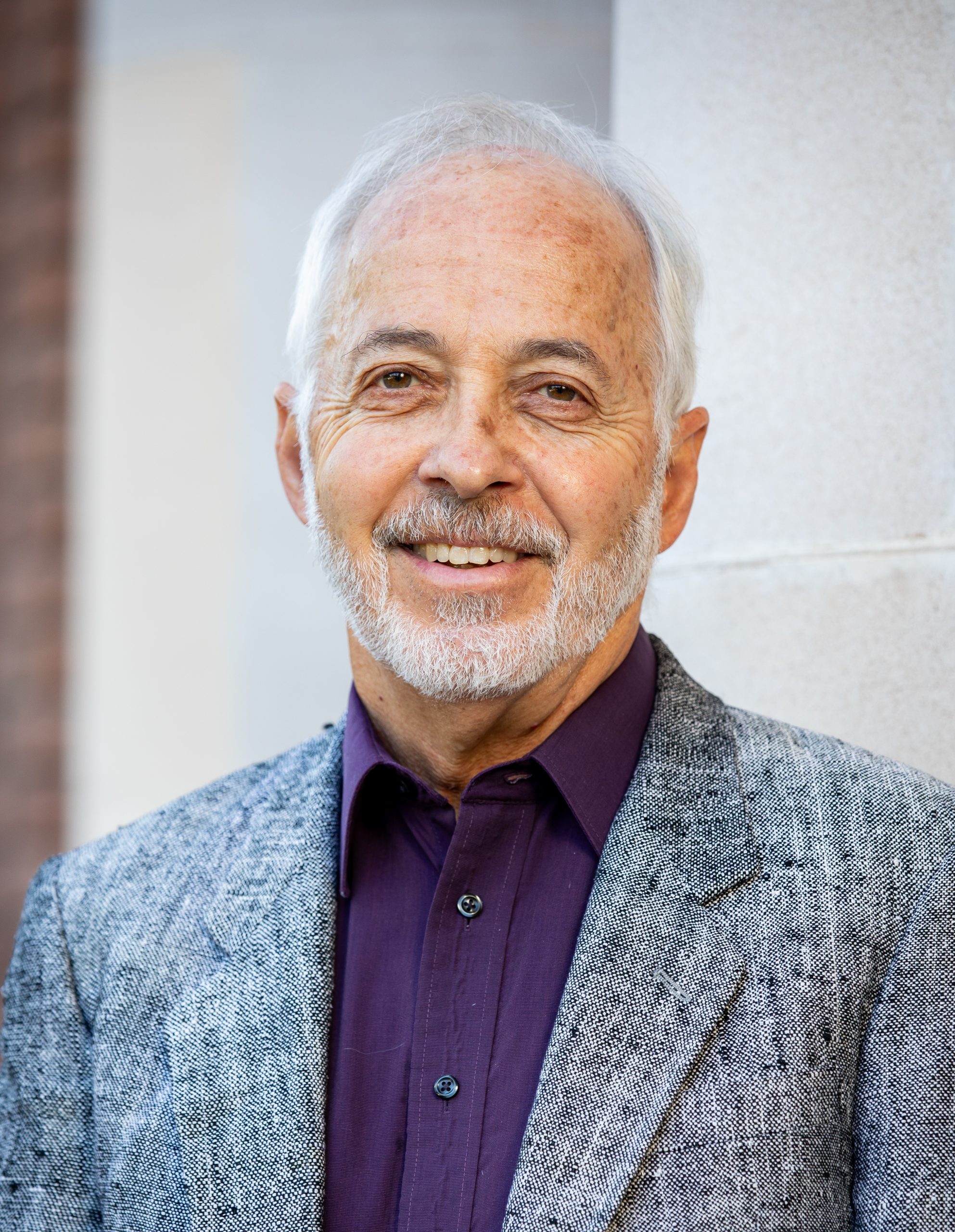
Dr. Falk emphasized the crucial role of CPC’s Board of Trustees in shaping the organization’s trajectory, and acknowledging their contributions as guardians of institutional memory and wisdom. He expressed gratitude to longstanding board members, founding botanic partners, staff, and advisors, whose contributions and dedication have spanned CPC’s four decades. Reflecting on the origins of CPC’s logo, Dr. Falk shared an anecdote—much to the delight of the crowd. While herding sheep for an agricultural land trust on a Massachusetts island with fellow co-founder Dr. Frank Thibodeau, they were inspired to hand draw (on the back of a case of beer) the logo, which revealed itself as both resembling nurturing hands and the leaves of a plant— underscoring both CPC’s mission and grassroots beginnings.
He commended CPC’s commitment to its mission of plant conservation, praising its evolution beyond focusing solely on growing the National Collection to encompass research, rare plant reintroductions, developing partnerships, and land conservation efforts. As an author of over 150 publications, Dr. Falk encouraged the attendees to publish their experimental results to facilitate knowledge sharing and prevent redundant mistakes. In keeping with his visionary approach to ecological resilience, Dr. Falk challenged conventional views on rare plants being a sign of evolutionary failure and maladaptation, proposing instead a reframing of rare species as agents of evolutionary progress. “All species are rare when they first evolve—are they not? What if, instead of trying to protect what is on the trailing edge of evolution…we are actually working on the leading edge of evolution?”
With the 2024 National Meeting being the largest conference in our history, we are grateful to all our attendees who are at the forefront of such amazing work being done to save plants. Thank you, Dr. Falk, for this lively address and your ongoing support of our mission to save plants from extinction!
2024 Star Award: Dr. Emily Coffey
Each year, the Center for Plant Conservation honors an individual in our network who demonstrates the concern, cooperation, and personal investment needed to conserve our imperiled native plants with the CPC Star Award. This year, CPC was thrilled to present the Star Award to Dr. Emily Coffey, Vice President of Conservation and Research at Atlanta Botanical Garden (ABG). As a longtime partner in the CPC network, Emily has made many meaningful contributions to the stewardship of the rare plants of Georgia and the rest of the southeast. Among Emily’s many successes, the incredible curation capacity she has built through partnerships and within ABG is a shining example for how one person can advance the field of plant conservation.
Widely known as a warm and generous colleague (who makes really good cookies!), Emily channels her passion for conservation into every initiative she’s involved in, large or small. She leads a talented and dedicated team at ABG and recognizes the critical need for both in situ and ex situ conservation–leading to maximum collaboration and impact. Emily embodies the CPC spirit of collaboration and knowledge sharing, and she utilizes best practices in her work to elevate the field of conservation. Emily is a truly extraordinary plant conservationist and partner, and we are so grateful to have her as part of CPC’s conservation community. Congratulations, Emily!
5th Annual National Meeting Photo Contest
Incredible photographs of rare plants, conservationists in the field, and beautiful habitats took center stage for the 5th Annual National Meeting Photo Contest. Entries were received from across the CPC network, with many beautiful photos competing for top prizes. Nathaniel Kingsley of Lyon Arboretum won the top prize with his stunning photo of a Schiedea pentandra seed.
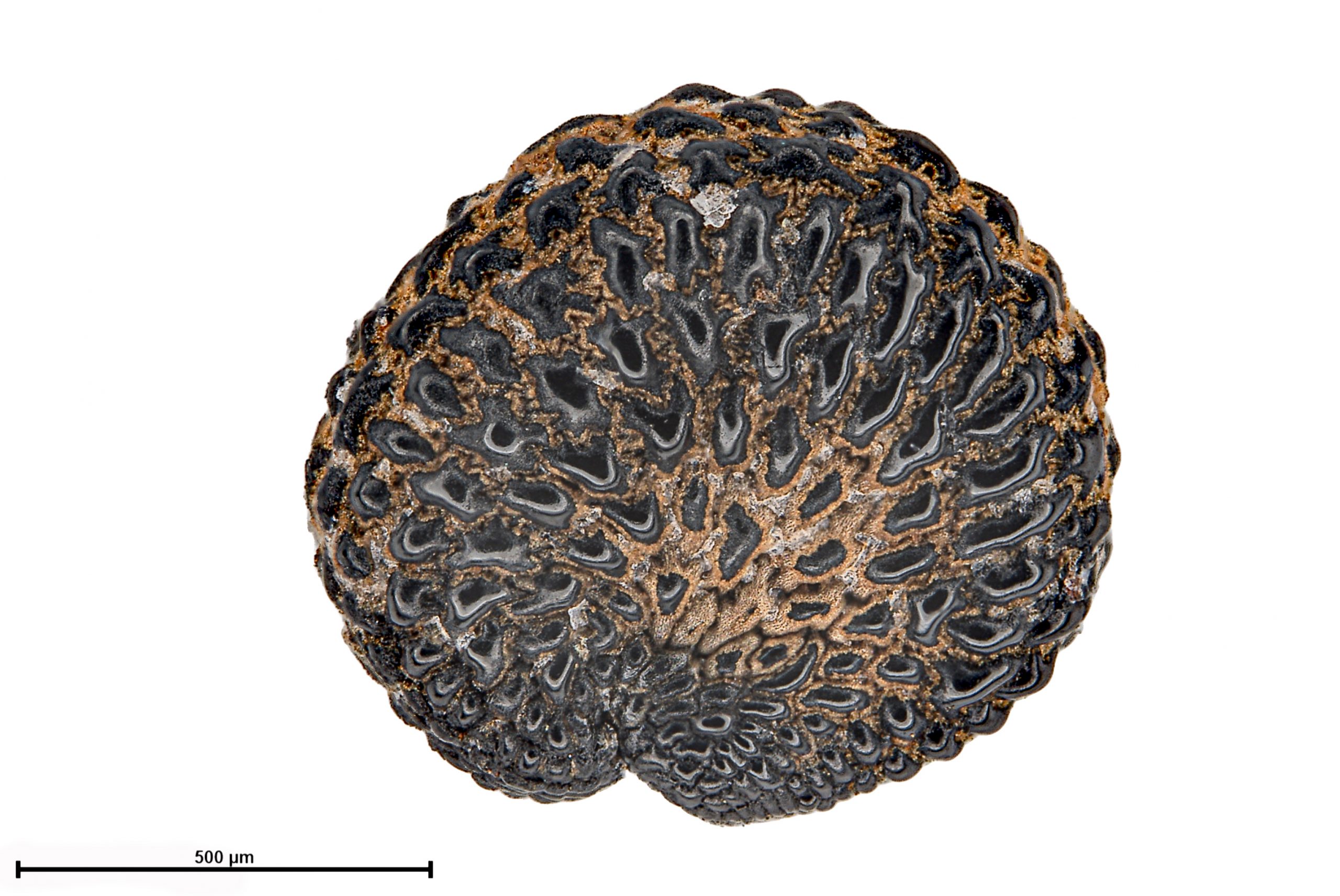
CPC’s 2023 Star Award winner, Steve Blackwell of Desert Botanical Garden, took second prize with his beautiful photo of San Francisco River Leather-Petal (Graptopetalum rusbyi) flowers.
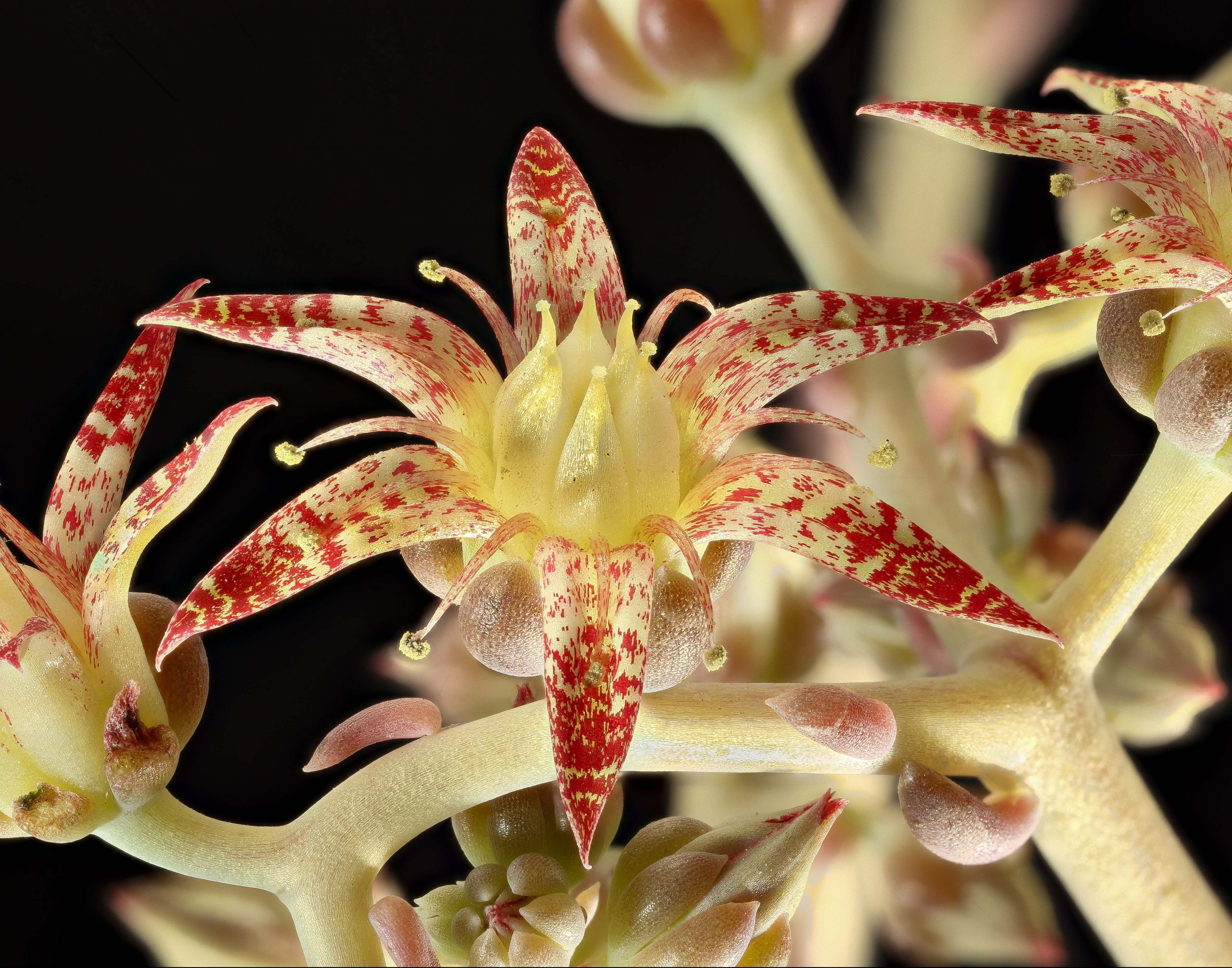
The third-place prize went to Joe DeWolf of San Diego Botanic Garden for his eye-catching photo of Opuntia lacunae pushing new growth onsite at the garden.
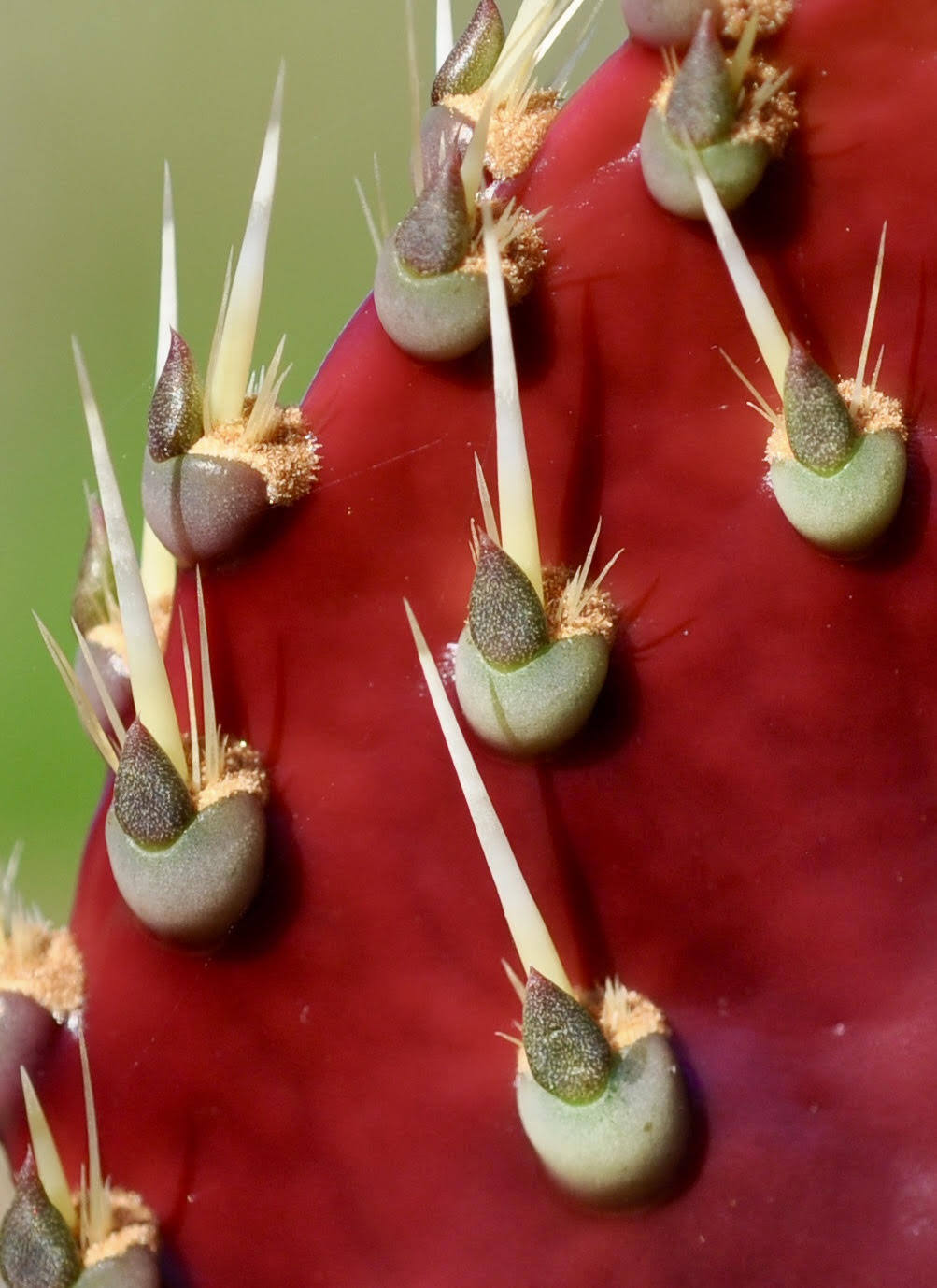
Congratulations to this year’s photo contest winners and thank you to everyone who participated!
View even more incredible rare plant photos on the Rare Plant Academy Photo Gallery! Featuring subjects ranging from seed banking and horticulture, to cryopreservation, reintroductions, and more, the Rare Plant Academy Photo Gallery educates, informs, and inspires those who work with, advocate for, and love plants.
CPC's 40th Anniversary Summit
In conjunction with the National Meeting, the Center for Plant Conservation (CPC) celebrated our organization’s milestone 40th anniversary at a special summit event, Conservation Innovation: Advancing Endangered Species Conservation, hosted in collaboration with the San Diego Natural History Museum. Blending celebration with purpose, this event commemorated the significant strides CPC and its network of Conservation Partners have made over the past 40 years to protect and conserve North America’s rare and endangered native flora.
CPC was honored to host distinguished scientists and conservationists from throughout its network of botanical organizations for a keynote presentation and panel discussion during the summit to share insights from their own research and initiatives.
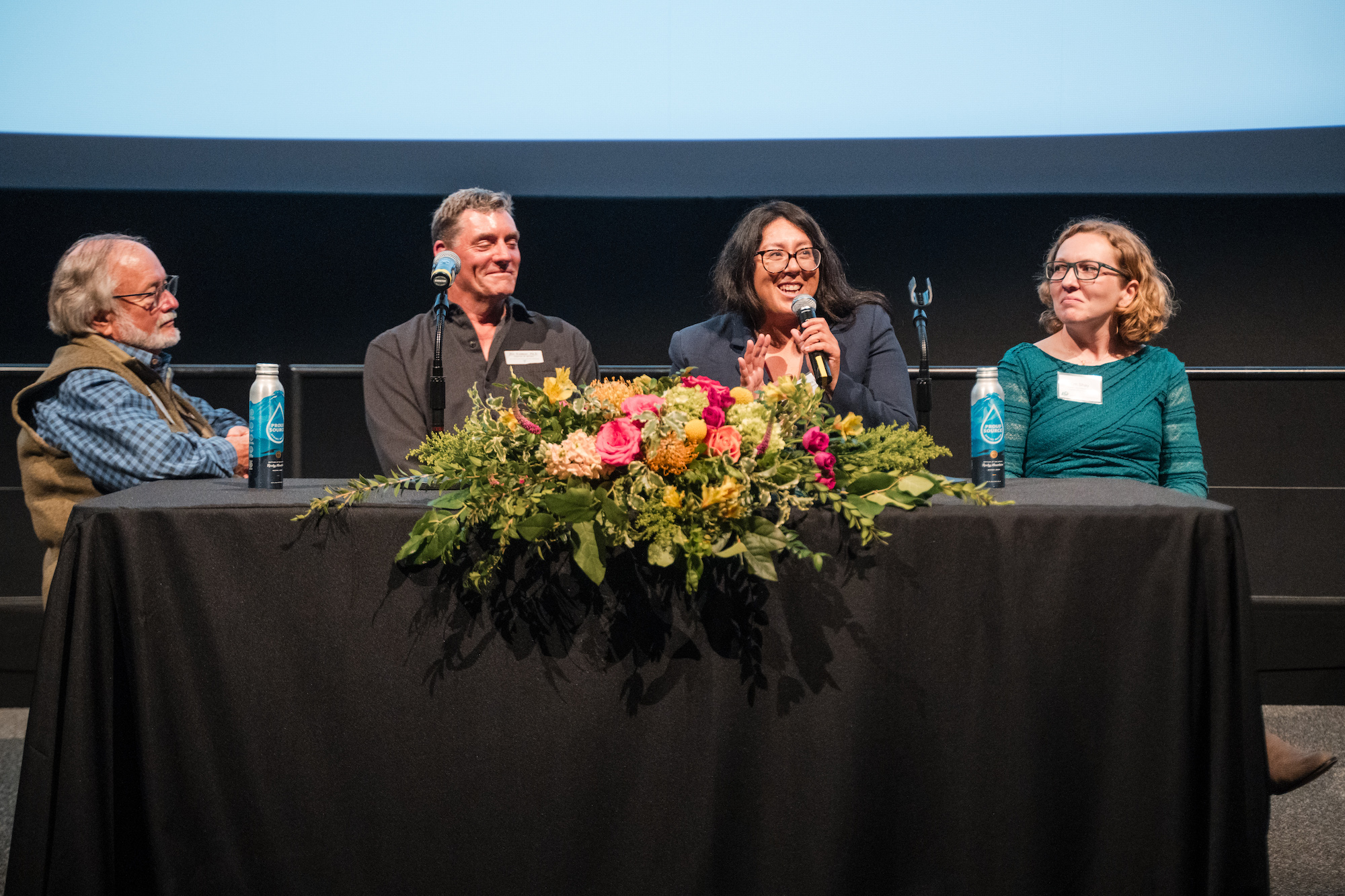
Attendees had the unique opportunity to hear from keynote speaker Dr. Oliver Ryder, Director of Conservation Genetics at the San Diego Zoo Wildlife Alliance, and a panel of leading experts in the field of plant conservation, including: Dr. Naomi Fraga, Director of Conservation Programs at California Botanic Gardens; Dr. Jon Rebman, Mary and Dallas Clark Endowed Chair/Curator of Botany at the San Diego Natural History Museum; and Kimberly Shay, Network Coordinator at Laukahi: The Hawai’i Plant Conservation Network.
The engaging panel discussion highlighted the critical urgency, challenges, and opportunities in our shared goal to species from extinction, with an overarching theme for success: innovation. By exploring and refining new technologies and methodologies—from biobanking genetic material to utilizing database and communication tools and citizen science apps—we can advance our work to save plants from extinction.
Another prevalent theme of the evening was collaboration. Working together and developing partnerships—with fellow conservation organizations, federal agencies, funders, citizen scientists, plant lovers, and more—we can amplify our efforts and save more plants than would ever be possible alone.
We were honored to be joined at this event by CPC’s co-founders, Dr. Frank Thibodeau and Dr. Don Falk, whose vision for an organization dedicated to rare plant conservation has flourished and grown into a network of 79 partner institutions dedicated to the preservation of rare and endangered plant species. We were also thrilled to be joined by many of our Conservation Partners from throughout the CPC network, former CPC staff members, members of CPC’s Board of Trustees, and many new friends who share our passion for nature and conservation.
We thank everyone who joined us for this wonderful evening to celebrate CPC’s 40th anniversary and the bright future we’re collectively creating for plants, people, and our planet.

CPC is grateful to our network of plant conservationists from 79 world-class botanical gardens, arboretums, and other plant-focused organizations that collaboratively work to save the 4,400 most rare and endangered plants of the United States, its territories, and Canada, throughout their native range.
National Collection Spotlight: Nantucket Shadbush
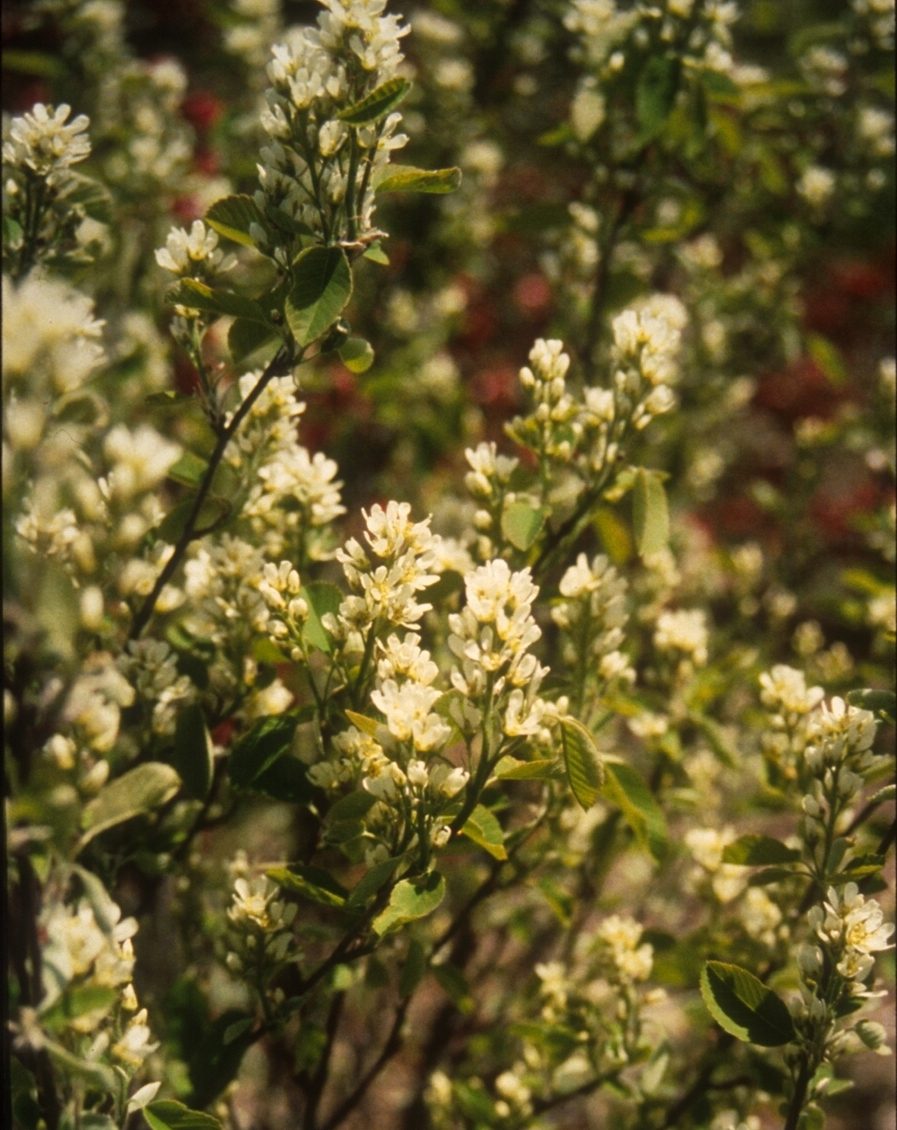
With a nod to CPC’s formative years stemming from conservation work amidst the landscape of New England, our National Collection Spotlight is the Nantucket Shadbush (Amelanchier nantucketensis). This rare, imperiled plant is being stewarded by Native Plant Trust, one of the nation’s first plant conservation organizations and a founding CPC Participating Institution. Located in Framingham, MA, their mission is to conserve and promote New England’s native plants.
The Nantucket Shadbush is endemic to the Atlantic Coast and found from Nantucket and Martha’s Vineyard down to New York’s Long Island. While previously thought to be confined to sunny, sandy seaside locations, new populations have been identified inland on dry, open hilltops. It is found in pine barrens, plain grasslands, dry moors, as well as old abandoned fields, roadsides, and at the edges of ponds. In May and early June, the Nantucket Shadbush produces cream-colored flowers, and in the late summer months of July and August, small, dark-blue fleshy berries appear.
In 2021, CPC contracted the Native Plant Trust to recollect seed from a population currently held in long term orthodox seed storage as part of an IMLS-funded seed longevity experiment. The National Laboratory for Genetic Resources Preservation will evaluate how germination tested viability and RNA Integrity of seed lots decline over time in storage, so that our network of conservation partners can best preserve this and other rare plant species. Learn more about conservation actions taken for Nantucket Shadbush on its National Collection Plant Profile and help support critical conservation work for this species with a Plant Sponsorship.
As Seen On CPC’s Rare Plant Academy: Conservation Resources
Did you know the Rare Plant Academy Video Library is a digital home to recordings from CPC’s National Meetings and other conferences dating back to 2018? You can revisit these presentations and conference proceedings, and also explore dynamic, short-form educational videos on essential topics in rare plant conservation.
For a deeper dive, enroll in CPC’s Applied Plant Conservation Course—our brand-new professional development resource that serves to train our current and future botanical workforce in the best practices of rare plant stewardship and conservation. In this free online course featured on the Rare Plant Academy, participants will learn from leading experts in the field of plant conservation through dynamic video lessons covering topics ranging from rare plant genetics and reintroductions, to seed collections, exceptional species, and more.
The course brings the CPC Best Practices Guidelines to life as an educational tool for those working with rare and native plants at any stage in their career. Modules III, IV, and V were recently released, with in-depth instruction on species distribution models and ecological niche models, conducting rare plant surveys, and planning rare plant reintroductions. These crucial insights into advancements (and lessons learned) in the field, lab, and greenhouse are essential to anyone working to conserve plants. Get a sneak peek at Module III with this animated lesson (above at left) which provides an overview of species distribution models and ecological niche models.
We also invite you to explore the free resources available to you on the Rare Plant Academy, including the Video Library, Photo Gallery, and Community Forum—which often features exciting job opportunities in the world of plant conservation. Get started today!
Get Updates
Get the latest news and conservation highlights from the CPC network by signing up for our newsletters.
Sign Up Today!Ways to Help CPC

Conservation Advocacy Initiatives

Donate to Save Endangered Plants
Without plants, life as we know it would not be possible. Yet two in five of the world’s plants are at risk of extinction. More than ever before, rare plants need our help!
When you support the Center for Plant Conservation (CPC) by making a charitable gift, you help advance our mission to safeguard rare plants by advancing science-based conservation practices, connecting and empowering plant conservationists, and inspiring all to protect biodiversity for future generations.
Your donation makes it possible for CPC to offer educational resources that support and train our botanical community, advance science-based conservation research, maintain the National Collection of Rare and Endangered Plants, and so much more.
The Center For Plant Conservation is a 501 (c) (3) non-profit organization (EIN# 22-2527116). Your gift to the Center for Plant Conservation is 100% tax deductible.
Your gift ensures CPC’s meaningful conservation work will continue. Together, we save more plants than would ever be possible alone—ensuring that both plants and people thrive for generations to come. We are very thankful to for all that you do to help us Save Plants!
Donate to CPC
Thank you for helping us save plant species facing extinction by making your gift to CPC through our secure donation portal!
Donate Today